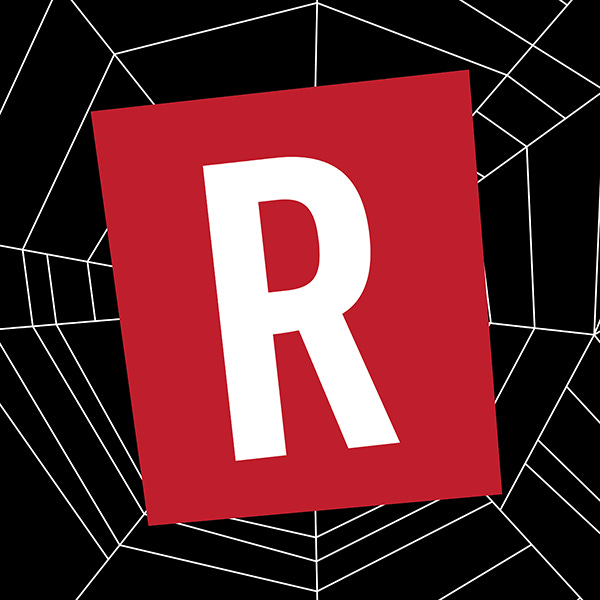Happy New Year to everyone except Substack's owners
I really didn't want to be thinking about Nazis for the entire holiday season, but here we are.
I’m probably going to be leaving the Substack network soon. Everything they’ve done in recent weeks has been depressingly predictable, and not in a good way.
Let’s start with a simple observation. Substack has done a good job of building a subscription-based newsletter service that uses email as its primary delivery mechanism. The tools are serviceable and remove most of the technical barriers to creating content and delivering it to an audience, for free or as part of a paid subscription. There are issues, of course, including Substack’s reliance on venture funding, its uncertain future, and a history from day one of supporting … well, let’s just call them polarizing voices.
Put all that aside, though, and you have a platform that works well, which is one reason it’s been successful. Indeed, some of my favorite people have chosen to publish here, including many smart, opinionated women.
And then there’s the Nazi problem.
Last month, a group of Substack contributors shared an open letter to Substack’s leadership that opens with a simple question: “Why are you platforming and monetizing Nazis?”
That open letter also includes a link to this article in The Atlantic: “Substack Has a Nazi Problem.” It’s worth reading, especially if you think this issue is being exaggerated. (And here’s a collage of some screenshots from those newsletters, which put the lie to the argument that these aren’t real Nazis. Yes, they are.)
The reply from Substack co-founder Hamish McKenzie mixed equal parts denial, dishonesty, and painfully simplistic techbro libertarianism. He defended Substack’s commitment to “upholding and protecting freedom of expression, even when it hurts.” (A side note here: If you are a sex worker or you want to share pornography, you will indeed be censored and banned from Substack, which seems like a curious gap in the whole “free speech” argument.)
McKenzie also champions Substack’s “decentralized approach to content moderation,” which shifts the burden back on to publishers to keep objectionable content out of their communities.
Ken White has probably the best, most thorough analysis of McKenzie’s squishy and inconsistent arguments:
Substack Has A Nazi Opportunity
Dealing With Nazis, Or Not, Can Be A Brand. Substack’s Monetizing It.
I am not inclined to denounce people who publish on Substack nor assert that fleeing Substack is the only moral choice. I think that reasonable minds can differ on the morality of renting a walled garden at an estate that also rents walled gardens to Nazis, especially when the other walled gardens on the market are all rife with their own problems. I think reasonable minds can differ on the ethos of creating a platform that makes a conscious decision not to moderate based on most content.
But that doesn’t mean I have to accept Substack’s attempt to convince me that its branding is about the good of humanity. It’s about money. Hamish McKenzie’s apologia for Substack’s approach is full of dubious (if common) arguments.
[…]
McKenzie is smuggling a host of value judgments under the pretense of not making value judgments, and it’s dishonest.
As they say, you should read the whole thing.
Anyway, the plain and simple issue to me is that Substack has no desire to invest in any kind of moderation tools. If you publish a newsletter, you’re expected to curate your own site. Why does that matter? Well, one of my favorite musical artists sent out an issue recently with some heartfelt remarks about the horrors of the Gaza war and asked her community to share their suggestions on the best places to contribute for humanitarian relief. It wasn’t long before a particularly horrible Nazi showed up in the comments, posting multiple replies with links to his virulently racist Nazi newsletter, hosted on Substack. Some of the comments even included quotes from The Protocols of the Learned Elders of Zion.
The newsletter owner is a busy recording artist who probably hasn’t checked those comments and missed my reports about the Nazi in there.
I also reported the author of those Nazi spam comments to Substack, and the response was … nothing. Literally, none. I wasn’t even asking them to deplatform a Nazi. But Substack can’t even do the bare minimum to stop someone who is clearly violating their terms of service with his spam campaign. (And who knows how many other newsletters are victims of similarly virulent spam campaigns from this Nazi? If you see one cockroach …)
This post has been sitting in my drafts folder for months. My very first notes, written last April, read as follows:
My issues with Substack:
Substack has problematic financing and an uncertain future
Original contributors are yucky: GG, Taibbi, Bari Weiss. Plus TERF stuff
Moderation policies are primitive and, frankly, naive. [Ed note: And we knew this last April, thanks to this remarkable interview of Substack CEO Chris Best by Verge Editor Nilay Patel!] Substack CEO refuses to say whether he would ban explicitly racist content]
It’s a walled garden, designed to encourage readers to subscribe to more authors in the Substack ecosystem and to not leave. Some of my favorite newsletters are outside.
Migrating is tough
Nothing has changed, except for the worse. In hindsight, that amazing deer-in-the-headlights moment in the interview with Chris Best was a defining moment for Substack, and not in a good way. The fact that it was so easy to see this coming is the biggest reason why I’ve been hesitating to invest my time and reputation in this platform.
Anyway, I’m going to join a whole bunch of colleagues in migrating to another service. I’m still trying to decide which one.
You don’t need to do anything to keep following me. When the time comes, I will migrate all current subscribers to the new platform and deal with any glitches in the move.
Thanks for your support.
